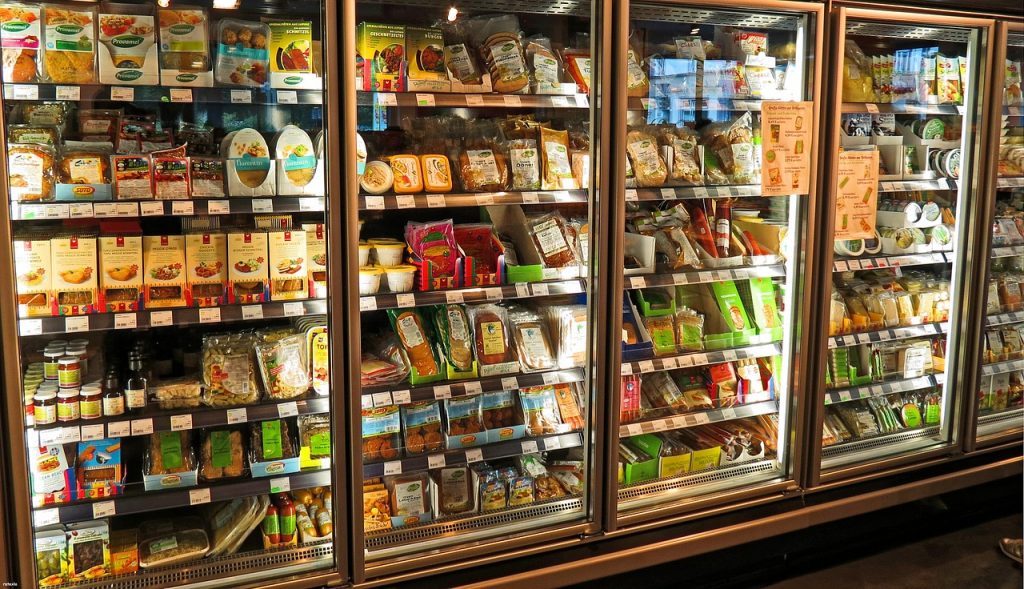
We all know why it is important to keep cold food in the refrigerator at home. Lowering the temperature vastly extends the shelf life. In addition, it keeps microbes from growing and helps keep our food tasting fresh longer. From the grocery store cooler to your refrigerator, many fresh and frozen products take a journey thanks to cold chain logistics.
Importance of Cold Chain Logistics
The experience most of us have with food starts at the refrigerated section of your local grocery store and ends in your refrigerator at home. However, it’s easy to forget that much more goes into the journey for temperature sensitive products than those two simple stops. Therefore maintaining a safe temperature for food, from farm to table, is important. As a result, this can be an impressive and intimidating part of the delivery process known as cold chain logistics.
At every step along the way, careful control of the temperature is important. Temperature monitoring keeps most cold chain food between 2 and 6 degrees C. If it gets warmer than that, spoilage becomes a risk factor. If it is allowed to freeze, fresh food can be compromised. Delicate items like fresh vegetables may never taste the same if they are allowed to freeze.
Cold chain logistic lines exist for both fresh and frozen food, although the temperature must be regulated differently to control whether or not the food is allowed to freeze or stay frozen.
Uses of Cold Chain Logistics
Cold chain logistics commonly moves fresh or frozen foods. Factors beyond temperature can damage those products. For some foods, like produce, controlling humidity to create the perfect environment for transport and preservation is important. Also, controlling individual gas levels to provide a higher level of inert gasses like CO2 or nitrogen, or to modify oxygen levels, is an option.
In addition, cold chain logistics benefits other items besides food. Although food makes up the majority of products transported using this method. Sensitive chemicals and drugs like vaccines must be kept in a controlled environment until they are ready for use. Otherwise, they can break down and become less effective or not effective at all.
Cold Chain Equipment
There are a lot of moving parts necessary in making a cold chain effective. The integrity of the product being shipped is compromised if any part of the operation fails.
One of the biggest factors in the cold chain is the refrigerated truck. Since products may need to be transported long distances (often across the country), there needs to be a way to keep it cold the entire time. These special trucks contain built in refrigeration units that run off of the truck’s engine. Combined with excellent insulation, this turns a regular truck into a giant, mobile refrigerator. Depending on the product, adjust the temperature to keep food below or above freezing temperature.
Entire warehouses can also be part of a cold chain. These warehouses can store large amounts of product, all kept within a very tight temperature range.
Since a failure at any part of the temperature controlled supply chain can damage the product, careful monitoring is necessary to ensure temperatures never exceed a set range.
Cannonball Express Transportation
Cannonball Express Shipping Company has been providing top-of-the-line service at a reasonable rate. Based in Omaha, Nebraska, we provide nationwide refrigerated LTL services, as well as, local delivery services. Contact us today!
Nationwide Shipping Company Services:
- Refrigerated LTL deliveries in the lower 48 states
- Refrigerated Cross dock
Local Shipping Company Services:
- Redelivery Services
- Truckload & LTL Capabilities
- PUP
- Cross dock
- Transload
- Warehouse and Distribution capabilities from multiple Omaha Locations
